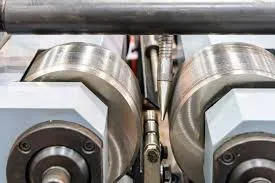
-
 Afrikaans
Afrikaans -
 Albanian
Albanian -
 Amharic
Amharic -
 Arabic
Arabic -
 Armenian
Armenian -
 Azerbaijani
Azerbaijani -
 Basque
Basque -
 Belarusian
Belarusian -
 Bengali
Bengali -
 Bosnian
Bosnian -
 Bulgarian
Bulgarian -
 Catalan
Catalan -
 Cebuano
Cebuano -
 Corsican
Corsican -
 Croatian
Croatian -
 Czech
Czech -
 Danish
Danish -
 Dutch
Dutch -
 English
English -
 Esperanto
Esperanto -
 Estonian
Estonian -
 Finnish
Finnish -
 French
French -
 Frisian
Frisian -
 Galician
Galician -
 Georgian
Georgian -
 German
German -
 Greek
Greek -
 Gujarati
Gujarati -
 Haitian Creole
Haitian Creole -
 hausa
hausa -
 hawaiian
hawaiian -
 Hebrew
Hebrew -
 Hindi
Hindi -
 Miao
Miao -
 Hungarian
Hungarian -
 Icelandic
Icelandic -
 igbo
igbo -
 Indonesian
Indonesian -
 irish
irish -
 Italian
Italian -
 Japanese
Japanese -
 Javanese
Javanese -
 Kannada
Kannada -
 kazakh
kazakh -
 Khmer
Khmer -
 Rwandese
Rwandese -
 Korean
Korean -
 Kurdish
Kurdish -
 Kyrgyz
Kyrgyz -
 Lao
Lao -
 Latin
Latin -
 Latvian
Latvian -
 Lithuanian
Lithuanian -
 Luxembourgish
Luxembourgish -
 Macedonian
Macedonian -
 Malgashi
Malgashi -
 Malay
Malay -
 Malayalam
Malayalam -
 Maltese
Maltese -
 Maori
Maori -
 Marathi
Marathi -
 Mongolian
Mongolian -
 Myanmar
Myanmar -
 Nepali
Nepali -
 Norwegian
Norwegian -
 Norwegian
Norwegian -
 Occitan
Occitan -
 Pashto
Pashto -
 Persian
Persian -
 Polish
Polish -
 Portuguese
Portuguese -
 Punjabi
Punjabi -
 Romanian
Romanian -
 Russian
Russian -
 Samoan
Samoan -
 Scottish Gaelic
Scottish Gaelic -
 Serbian
Serbian -
 Sesotho
Sesotho -
 Shona
Shona -
 Sindhi
Sindhi -
 Sinhala
Sinhala -
 Slovak
Slovak -
 Slovenian
Slovenian -
 Somali
Somali -
 Spanish
Spanish -
 Sundanese
Sundanese -
 Swahili
Swahili -
 Swedish
Swedish -
 Tagalog
Tagalog -
 Tajik
Tajik -
 Tamil
Tamil -
 Tatar
Tatar -
 Telugu
Telugu -
 Thai
Thai -
 Turkish
Turkish -
 Turkmen
Turkmen -
 Ukrainian
Ukrainian -
 Urdu
Urdu -
 Uighur
Uighur -
 Uzbek
Uzbek -
 Vietnamese
Vietnamese -
 Welsh
Welsh -
 Bantu
Bantu -
 Yiddish
Yiddish -
 Yoruba
Yoruba -
 Zulu
Zulu
Different Methods and Techniques for Thread Rolling Services in Manufacturing Industry
Types of Thread Rolling Services
Thread rolling is an essential manufacturing process utilized to create various threaded components used in a multitude of applications. This technique is favored in industries such as automotive, aerospace, and machinery due to its efficiency and the superior strength of the resulting threads. The thread rolling process involves deforming a material to create threads instead of cutting them, which enhances the structural integrity of the product. Understanding the different types of thread rolling services can help manufacturers choose the most suitable method for their specific needs.
Firstly, thread rolling can be classified into two primary methods flat thread rolling and cylindrical thread rolling.
1. Flat Thread Rolling This method uses two flat dies to create threads on the surface of the workpiece. The flat dies apply pressure against the material, causing it to flow into the shape of the desired thread. This process is ideal for producing long threaded rods or components with external threads. The flat thread rolling technique is particularly advantageous for making consistent and high-quality threads with excellent dimensional accuracy. It is commonly used for applications such as fasteners, bolts, and screws where precision is crucial.
2. Cylindrical Thread Rolling In this method, the workpiece is rotated between two cylindrical dies that compress the material to form the threads. Unlike flat rolling, which is generally used for straight components, cylindrical thread rolling can be used to produce threads on both straight and tapered surfaces. This versatility makes it ideal for producing various types of components such as valves, pipes, and other fittings. The cylindrical thread rolling process yields high strength and durability, making it suitable for demanding applications.
Beyond the basic methods, there are several specialized thread rolling services that cater to specific manufacturing requirements
types of thread rolling service

1. Conventional Thread Rolling This standard technique is used for creating a wide range of thread sizes and types. It is ideal for bulk production as it minimizes material wastage and enhances production speed.
2. Precision Thread Rolling As the name suggests, this service focuses on producing highly accurate threads, often used in applications where tight tolerances are critical. Precision thread rolling requires advanced machinery and skilled operators to ensure that each component meets stringent quality standards.
3. Rolled Threads vs. Cut Threads One significant debate in manufacturing is whether to use rolled or cut threads. While cut threads are more straightforward to produce and are often used for low-volume applications, rolled threads are preferred in high-strength applications due to their enhanced fatigue resistance. Thread rolling produces a work-hardened surface, improving the mechanical properties of the thread.
4. Custom Thread Rolling Many manufacturers seek custom thread rolling services to meet unique specifications for their products. This includes variations in thread profiles, diameters, and lengths, which are often necessary for specialized equipment or applications.
5. Multi-start Thread Rolling This advanced technique allows the creation of threads with more than one start. Multi-start threads are essential for applications that require a rapid engagement or disengagement, such as in some mechanical assemblies and fasteners.
In conclusion, thread rolling services encompass a variety of methods tailored to meet the growing demands of various industries. From flat and cylindrical thread rolling to specialized precision and custom services, manufacturers have multiple options to choose from. Selecting the appropriate thread rolling technique can lead to improved product performance, enhanced durability, and overall cost-effectiveness in production. Understanding these types of thread rolling services ensures that businesses can make informed decisions, optimizing their manufacturing processes for maximum efficiency and quality.
